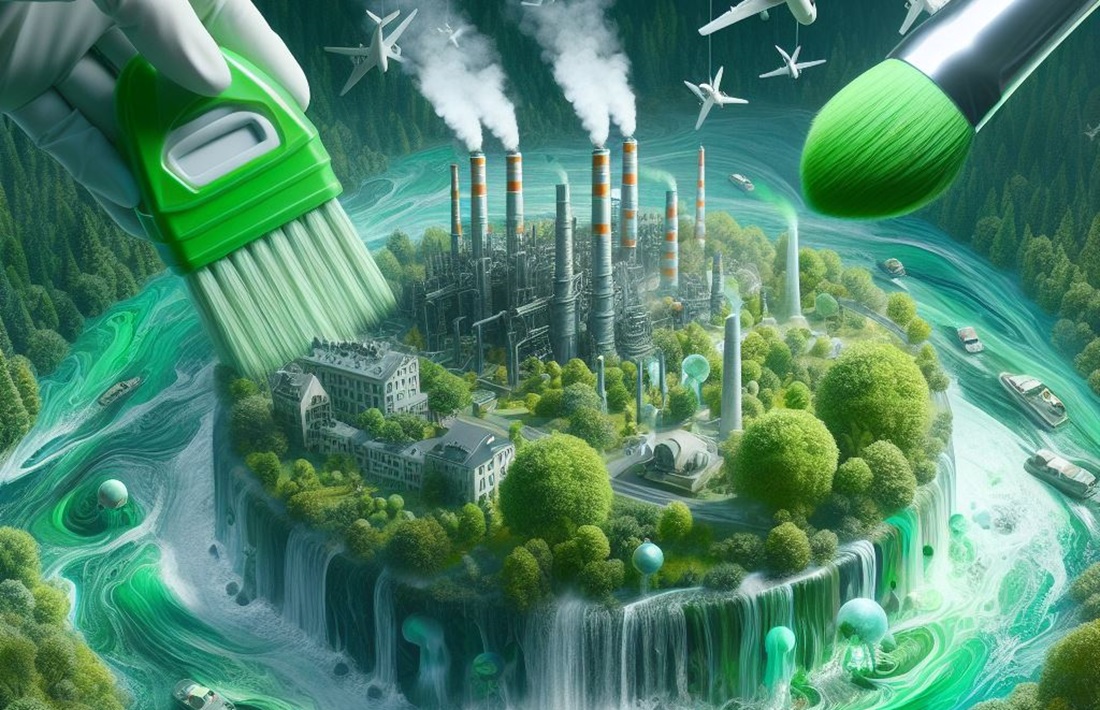Economy and business
Stop to Greenwashing for European Companies

As of Sept. 27, 2026, the adoption by companies and professionals of one of the conducts is underway. Now companies will have to be much more careful before claiming to be “green” or to follow ESG parameters. Incorrect communications, from now on, will have consequences.
EU member state competent authorities will promptly take into account “greenwashing” of the false commercial activities listed on the “black list” of the recently adopted Directive 2024/825/EU.
The deadline is imposed by a new EU regulation against “green window dressing,” or misleading consumers into believing that products or procedures are more environmentally friendly than they actually are. In fact, the new measure, published in the EU Official Journal on March 6, 2024, introduces into the EU legal system a long list of commercial practices that will have to be by member states “considered unfair in all cases” and misleading about the real environmental qualities of the promoted goods or services.
No more ESG-based false communications
The new law recasts Directive 2005/29/EU on consumer protection, which forbids upstream “commercial practices” (advertising acts and omissions) that are considered “unfair” if they are both false, contrary to professional diligence, or likely to materially distort the average consumer’s economic behavior.
Within “unfair commercial practices,” Directive 2005/29/EC identifies, we recall, the two particular categories of “misleading” (i.e., likely to mislead consumers) and “aggressive” (consisting of unlawful pressure on consumers).
The recently enacted Directive 2024/825/EU intervenes in this regulatory context by including specific greenwashing figures in the lists of Directive 2005/29/EU, which identify the most recurring cases of misleading commercial practices, with the aim of reducing the associated evidentiary burden on consumers and protection associations in the appropriate forums.
The blacklist of greenwashing cases
The addition of specific numbers related to “environmental marketing” to Annex 1 of Directive 2005/29/EU—which lists commercial practices that are “considered unfair in all cases,” or by virtue of a legal presumption—is, in fact, the most significant intervention of Directive 2024/825/EU.
In relation to these figures, stakeholders will thus be exempt from proving the suitability of the conduct to materially distort the average person’s commercial choice. First, if a company chooses to “display a sustainability label that is not based on a certification system or is not established by public authorities,” it will be assumed by the law that this constitutes greenwashing activity under the revised “black list.”
Therefore, it will be illegal to use any voluntary marks that do not comply with ex lege requirements and are not validated by independent third parties, as well as any marks that are not created by the EU (like the Ecolabel) or member states (like the “Green made in Italy” mentioned in DM 56/2018).
Again, it will be “in all cases unfair” business practice to “make a generic environmental claim for which the economic operator is unable to demonstrate recognized excellence in relevant environmental performance.” This will have an impact on environmental claims (apart from trademarks) whose authors are unable to provide evidence of their compliance (again) with legally recognized environmental quality systems and which are not clarified through the same medium that conveys them, such as general “green,” “eco-friendly,” or “environmentally friendly” claims.
Other unfair commercial conduct by legal presumption will be making overall environmental claims about products/activities but actually concerning only a particular aspect of them (in the crosshairs, this time, are slogans of the tenor “made from recycled material” or “from renewable sources” that turn out to be true only in part). Unfair ex lege will also be to claim that a product has a neutral, reduced, or positive impact on the environment in terms of greenhouse gases by referring, however, not to the entire life cycle of the product but to “offsets” of the emissions in question (this is the case with some claims linked to phrases such as “neutral” or “net zero emissions” for the climate, which can give a false impression of no environmental impact).






